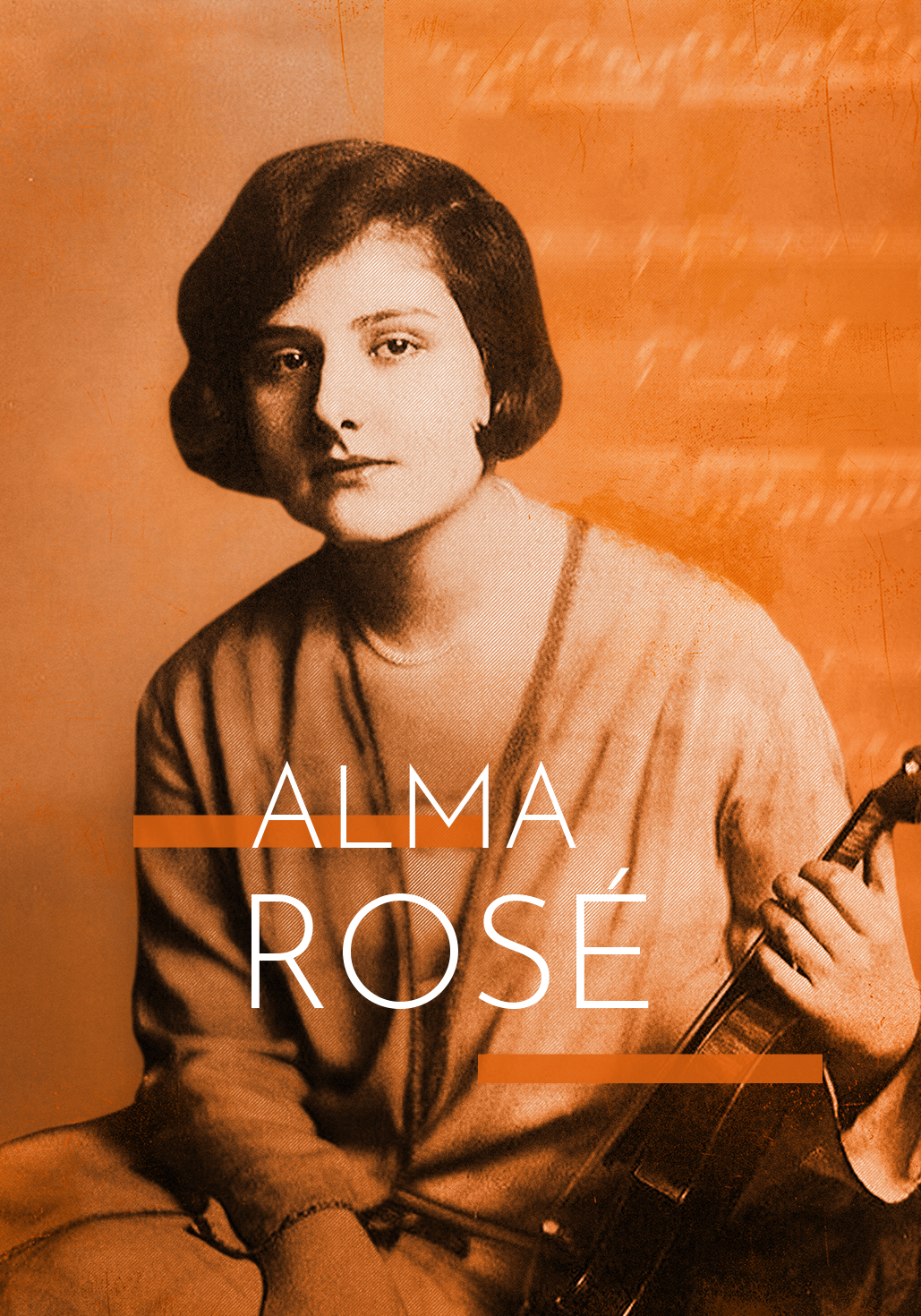3 XI 1906, Vienna — 4 IV 1944, KL Auschwitz-Birkenau
Biography
Alma Rosé was a violinist who led the women’s orchestra Die Wiener Walzermädeln (‘The Waltzing Girls of Vienna’), which performed in numerous European countries, including Austria, Germany, Czechoslovakia, and Poland. She was the conductor of the women’s orchestra at the Auschwitz-Birkenau concentration camp.
Alma was born to a family with strong musical ties. Her father, Arnold Rosé (born Rosenblum, 1863-1946) was the first violinist in the legendary Rosé Quartet as well as in the Vienna Philharmonic. Her mother, Justine (died 1938), was the sister of Gustav Mahler.
In 1938, the Third Reich annexed Austria, and Alma and her father fled to London. After the outbreak of the war, Alma moved to the Netherlands, later relocating to France. Deported to Auschwitz-Birkenau in 1943, Alma led the women’s camp orchestra. The ensemble’s original function was to play at the camp’s main gate when prisoners left for work in the mornings and returned in the evenings.
As the conductor, she raised the musical level of the orchestra. Playing in the ensemble gave the members a chance to survive the harsh conditions of the camp; in fact, all the members survived except for Charlotte “Lola” Croner and Julie Stroumsa. Under Alma’s direction, the artists began to give concerts for the SS, playing a broad classical repertoire. She died in the camp probably due to food poisoning. She was 37 years old.
—
Alma Rosé: a music theater video
A story about a world-class violinist, Alma Rosé, who spent her life performing on the stages of the largest concert halls in Europe. In 1943, due to her Jewish origin, she was taken to the Auschwitz-Birkenau camp, where she became the conductor of the women’s camp orchestra.
Performed by:
Anna Błaut – monologue (Alma)
Małgorzata Wasiucionek – violin (Alma)
Malwina Kotz – violin
Sylwia Matuszyńska – cello
Aleksandra Zych – viola
Justyna Skoczek – piano
Bente Kahan – producer and director
Mariusz Urbanek – script
Małgorzata Wasiucionek – music manager
Jakub Wieczorek – director of photography
Jakub Wieczorek, Bente Kahan – editing
Maciej Marchewka – sound
Mateusz Stępniak – costumes and makeup
Bente Kahan – producer
Agnieszka Imiela-Sikora – production manager
Paulina Jakubowicz, Anna Trojanowska, Anna Brzozowska, Małgorzata Hućko – production assistants
Paulina Jakubowicz, Dahlia Luxemburg – English subtitles
Krzysztof Wilma – photos
Photos and illustration thanks to Mahler-Rose Collection, Gustav Mahler-Alfred Rose Room, Music Library, University of Western Ontario
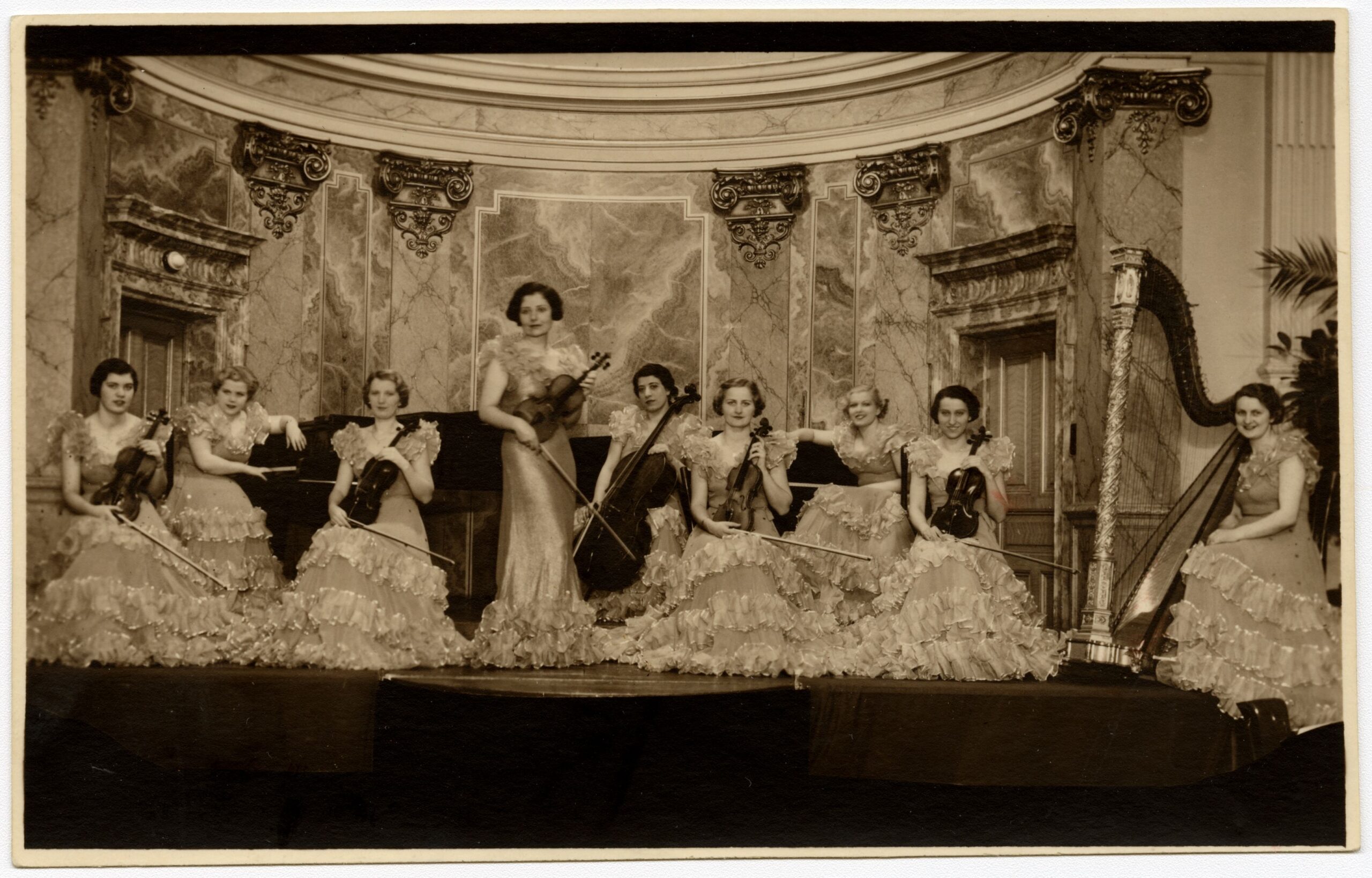
Alma Rosé with „Die Wiener Malzermädeln” orchestra
—
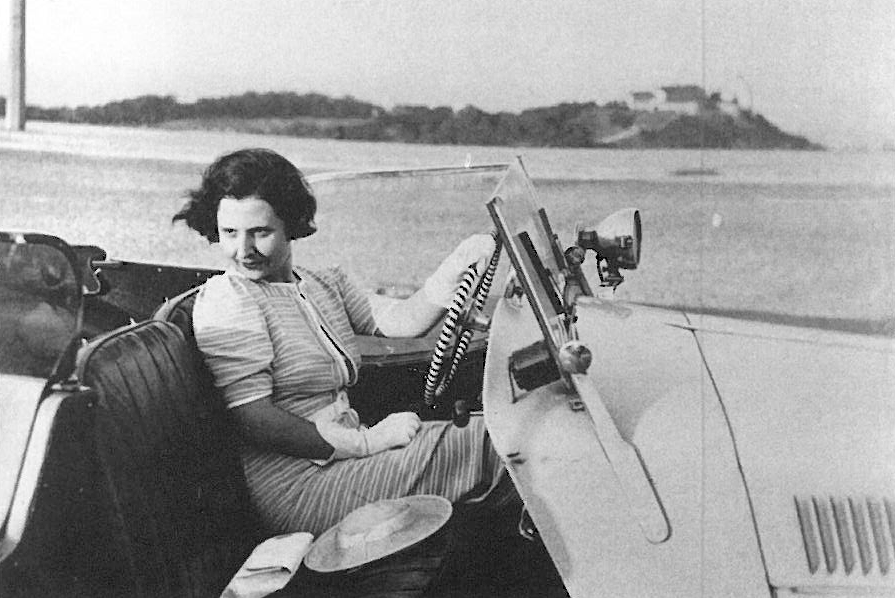
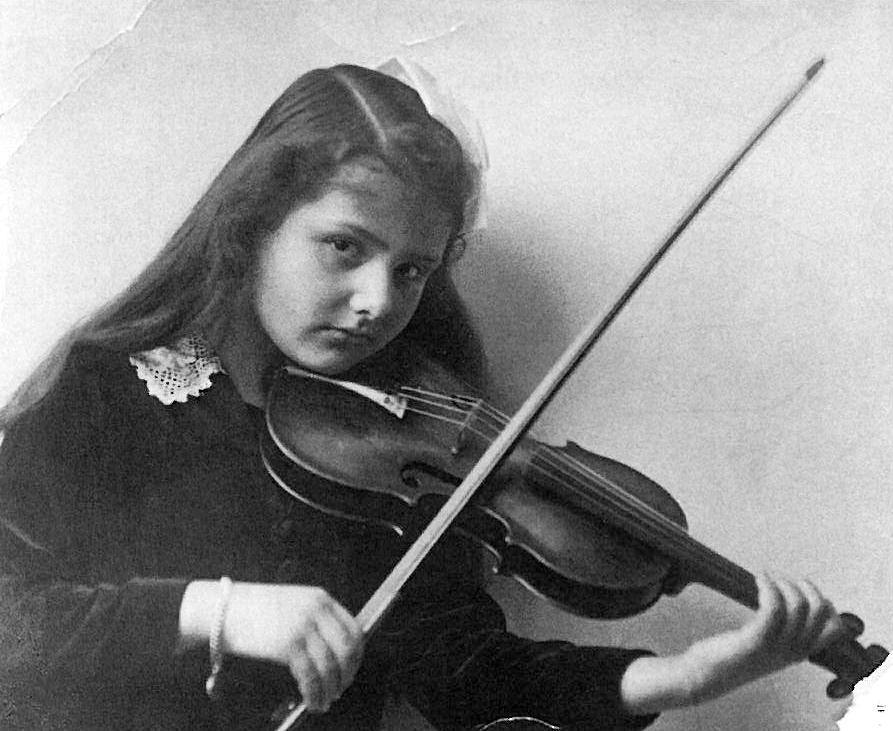
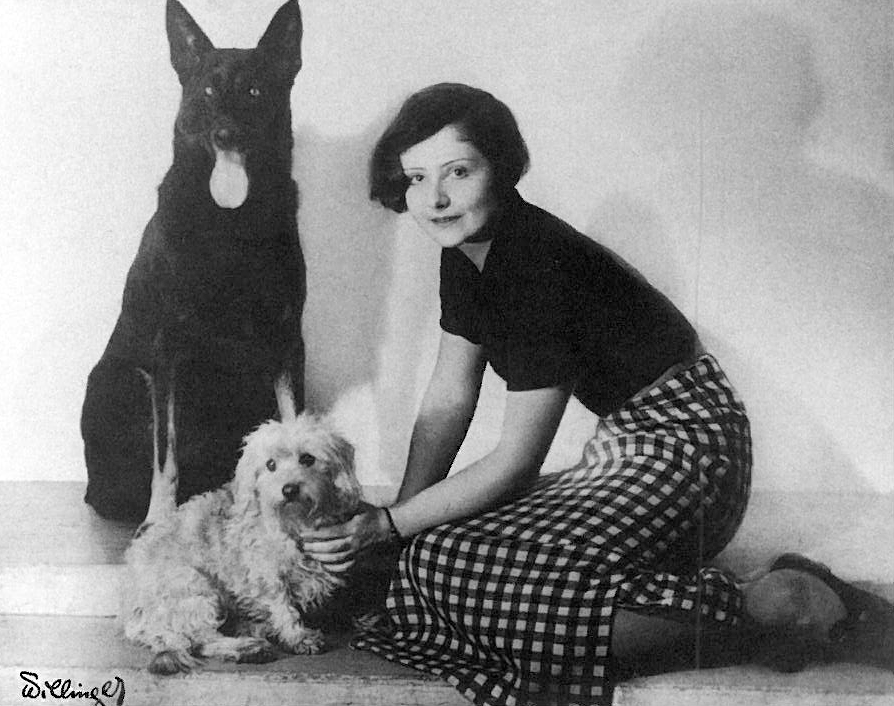
The owner and copyright holder of the visual material is the National Library of Canada.
Alma Rosé was a violinist who led the women’s orchestra Die Wiener Walzermädeln (‘The Waltzing Girls of Vienna’), which performed in numerous European countries, including Austria, Germany, Czechoslovakia, and Poland. She was the conductor of the women’s orchestra at the Auschwitz-Birkenau concentration camp.
Alma was born to a family with strong musical ties. Her father, Arnold Rosé (born Rosenblum, 1863-1946) was the first violinist in the legendary Rosé Quartet as well as in the Vienna Philharmonic. Her mother, Justine (died 1938), was the sister of Gustav Mahler.
In 1938, the Third Reich annexed Austria, and Alma and her father fled to London. After the outbreak of the war, Alma moved to the Netherlands, later relocating to France. Deported to Auschwitz-Birkenau in 1943, Alma led the women’s camp orchestra. The ensemble’s original function was to play at the camp’s main gate when prisoners left for work in the mornings and returned in the evenings.
As the conductor, she raised the musical level of the orchestra. Playing in the ensemble gave the members a chance to survive the harsh conditions of the camp; in fact, all the members survived except for Charlotte “Lola” Croner and Julie Stroumsa. Under Alma’s direction, the artists began to give concerts for the SS, playing a broad classical repertoire. She died in the camp probably due to food poisoning. She was 37 years old.

